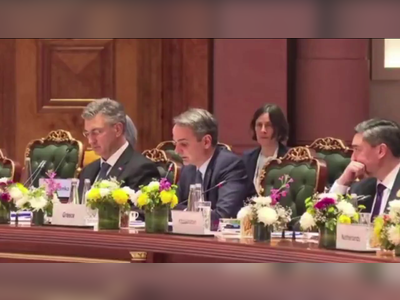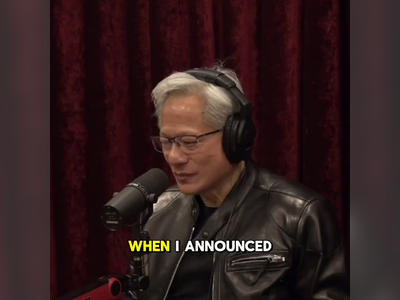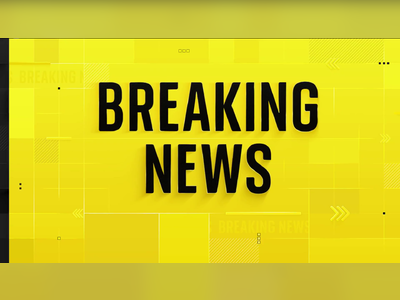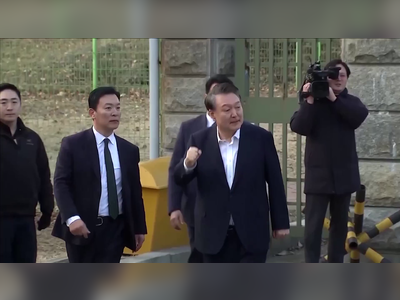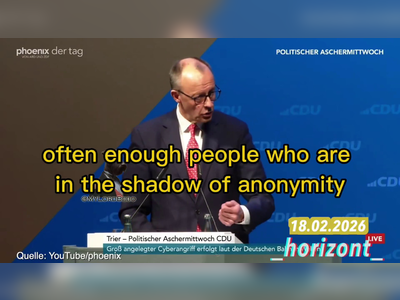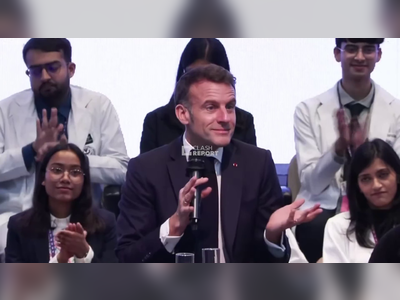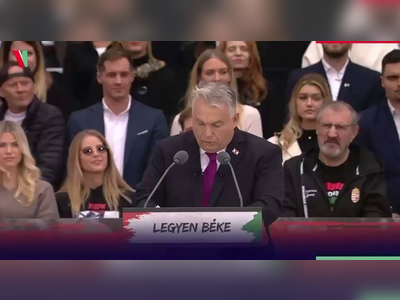Unprecedented Move: France Enshrines Abortion Rights in Constitution
"France owes a moral debt to all the women who have suffered in their bodies because of illegal abortions," Prime Minister Gabriel Attal announced at the opening debate of the joint session of both houses of parliament, the Congress.
For the first time in 16 years, the deputies and senators convened together at the Palace of Versailles to amend the constitution, and with a significant majority of 780 'yes' votes to 72 'no' votes, they adopted the government's bill. This bill had already been separately approved by both the National Assembly and the Senate. President Emmanuel Macron hailed the amendment as a "source of French pride" and a "universal message."
"Let us celebrate together the inauguration of a new, guaranteed freedom in our constitution!" the President wrote in his message posted on social media platforms.
Just four days before March 8, the International Women's Rights Day, the reform includes the following sentence in Article 34 of the constitution:
"The law defines the conditions under which women's right to terminate a pregnancy is guaranteed."
On Monday evening, the Eiffel Tower was illuminated to commemorate the vote, bearing the message "My Body, My Choice."
The gathered crowd on site also celebrated the constitutional amendment.
On March 8, 2023, President Emmanuel Macron committed to enshrine the right to abortion in the constitution following the decision of the U.S. Supreme Court that allowed U.S. states to ban abortion, raising concerns within France.
Surveys indicate that over eighty percent of the French public supports the constitutional right to abortion, which has gradually gained majority support among politicians. Even a substantial majority of traditionally abortion-skeptical right-wing representatives endorsed the reform in the Congressional vote.
Abortion was legalized in France in 1975, four years after 343 women, including actress Jeanne Moreau and Catherine Deneuve, along with writers Simone de Beauvoir, Marguerite Duras, and Francoise Sagan, exposed in a then-shocking appeal that they had resorted to illegal abortions.
THE HOLY SEE RESPONDS
"In an age of universal rights, there cannot be a right to end human life," responded the Pontifical Academy for Life to the French legislation's step of incorporating the right to abortion into the constitution on Monday.
The Pontifical Academy for Life emphasized that for the Catholic Church, the protection of life is not an ideology but a reality.
"A human reality that affects all Christians, precisely because they are Christians and humans," the statement read.
Pope Francis's previous address was quoted in the document, indicating that the culture of life is not exclusively part of the Christian heritage, but belongs to everyone who, striving to build fraternal relationships, recognizes the value of each person, even in fragility and suffering.
The scientific body, constituted of both ecclesiastical and secular members, reinforced the stance of the French bishops' conference, stating that abortion counts as an act against life and cannot be viewed purely from the perspective of women's rights.
"It's regrettable that the debate on the matter did not address support for those wanting to keep their unborn children," noted the Pontifical Academy for Life.
The academy issued a call to governments and all religious communities to work towards making the protection of life the absolute priority in the current historical era, through concrete actions for peace and social justice. The statement demanded universal access to healthcare services and the provision of legal tools primarily aimed at protecting the weak and vulnerable in particularly difficult life situations.
They added that protecting life is humanity's paramount goal, achievable only in a world free of war and division, with technology and industry serving the human person and brotherhood. The academy urged "cultural and educational action" to ensure future generations adopt attitudes of solidarity, care, and inclusion.
The Pontifical Academy for Life, based at the Vatican, was founded in 1994 by Pope John Paul II. The institution engages with bioethical issues, with a focus on the protection of life. It aids the Holy See in maintaining contact with the international scientific community, universities, and research centers.
"Let us celebrate together the inauguration of a new, guaranteed freedom in our constitution!" the President wrote in his message posted on social media platforms.
Just four days before March 8, the International Women's Rights Day, the reform includes the following sentence in Article 34 of the constitution:
"The law defines the conditions under which women's right to terminate a pregnancy is guaranteed."
On Monday evening, the Eiffel Tower was illuminated to commemorate the vote, bearing the message "My Body, My Choice."
The gathered crowd on site also celebrated the constitutional amendment.
On March 8, 2023, President Emmanuel Macron committed to enshrine the right to abortion in the constitution following the decision of the U.S. Supreme Court that allowed U.S. states to ban abortion, raising concerns within France.
Surveys indicate that over eighty percent of the French public supports the constitutional right to abortion, which has gradually gained majority support among politicians. Even a substantial majority of traditionally abortion-skeptical right-wing representatives endorsed the reform in the Congressional vote.
Abortion was legalized in France in 1975, four years after 343 women, including actress Jeanne Moreau and Catherine Deneuve, along with writers Simone de Beauvoir, Marguerite Duras, and Francoise Sagan, exposed in a then-shocking appeal that they had resorted to illegal abortions.
THE HOLY SEE RESPONDS
"In an age of universal rights, there cannot be a right to end human life," responded the Pontifical Academy for Life to the French legislation's step of incorporating the right to abortion into the constitution on Monday.
The Pontifical Academy for Life emphasized that for the Catholic Church, the protection of life is not an ideology but a reality.
"A human reality that affects all Christians, precisely because they are Christians and humans," the statement read.
Pope Francis's previous address was quoted in the document, indicating that the culture of life is not exclusively part of the Christian heritage, but belongs to everyone who, striving to build fraternal relationships, recognizes the value of each person, even in fragility and suffering.
The scientific body, constituted of both ecclesiastical and secular members, reinforced the stance of the French bishops' conference, stating that abortion counts as an act against life and cannot be viewed purely from the perspective of women's rights.
"It's regrettable that the debate on the matter did not address support for those wanting to keep their unborn children," noted the Pontifical Academy for Life.
The academy issued a call to governments and all religious communities to work towards making the protection of life the absolute priority in the current historical era, through concrete actions for peace and social justice. The statement demanded universal access to healthcare services and the provision of legal tools primarily aimed at protecting the weak and vulnerable in particularly difficult life situations.
They added that protecting life is humanity's paramount goal, achievable only in a world free of war and division, with technology and industry serving the human person and brotherhood. The academy urged "cultural and educational action" to ensure future generations adopt attitudes of solidarity, care, and inclusion.
The Pontifical Academy for Life, based at the Vatican, was founded in 1994 by Pope John Paul II. The institution engages with bioethical issues, with a focus on the protection of life. It aids the Holy See in maintaining contact with the international scientific community, universities, and research centers.
AI Disclaimer: An advanced artificial intelligence (AI) system generated the content of this page on its own. This innovative technology conducts extensive research from a variety of reliable sources, performs rigorous fact-checking and verification, cleans up and balances biased or manipulated content, and presents a minimal factual summary that is just enough yet essential for you to function as an informed and educated citizen. Please keep in mind, however, that this system is an evolving technology, and as a result, the article may contain accidental inaccuracies or errors. We urge you to help us improve our site by reporting any inaccuracies you find using the "Contact Us" link at the bottom of this page. Your helpful feedback helps us improve our system and deliver more precise content. When you find an article of interest here, please look for the full and extensive coverage of this topic in traditional news sources, as they are written by professional journalists that we try to support, not replace. We appreciate your understanding and assistance.






